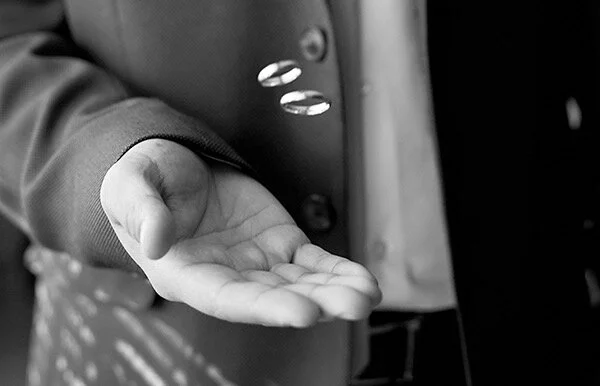MARRIAGE BY COIN FLIP? PART 2
Last week, I discussed how the decision to get married is one of the biggest decisions of our lives, and yet 50% of the time we get it wrong, according to divorce statistics. Let’s look at HOW to get this decision right using the four-step formula in Never Be Wrong Again - Four Steps to Making Better Decisions in Work and in Life:
Timing
When do you have to make the decision to get married? There may be social pressure at an age when friends are getting serious and making commitments. You may want to be married for a few years before having children, and your biological clock is ticking.
These reasons are valid but also classic cases of “priming”—putting yourself in the mental state of mind that you should get married. This can cause you to scour the landscape looking for a mate a little too intensely and possibly overlook red flags or become desperate and pick the wrong person.
Maybe after dating someone for two or three years you feel that the logical next step is to get married. You may feel that you “might as well” get married because you have already spent three years with this person. This is a classic case of “sunk cost” fallacy. You can’t get those three years back whether you marry that person or not, so it shouldn’t be a factor.
These self-imposed time pressures have nothing to do with picking the right partner.
Balance
Every decision should be in balance or out of balance in your favor. In marriage, the balance of risk versus reward or cost versus benefit can and should be weighed. Before you disagree, hear me out.
Yes, there needs to be chemistry or some sort of “spark” between two people in order for them to get romantically involved, contemplate living together, and then possibly make their arrangement legally binding by getting married. While the chemistry is necessary, people frequently stop thinking about what else marriage entails. If you are sexually attracted to a potential partner and someone comes by who is slightly more attractive, it does not mean that the new contender will make a better life partner. You need the sexual chemistry, but beyond that, it is (or should be) all about compatibility and this does involve the balance between cost and benefit or risk and reward.
There is no way to hedge against the emotional pain of an unsuccessful marriage, but we can better avoid a bitter divorce. Prenuptial agreements are used specifically to lower such risk. A prenuptial agreement may sound cold and calculating, but if your marriage is successful, the prenup is a non-issue. Otherwise, it can protect both parties. A prenuptial agreement can establish monetary awards and visitation rights and can be used to safeguard against, or punish, bad behavior. While we want to be fair with our potential life partner, our definition of “fair” might change if we catch our spouse having an affair with our best friend.
Probabilities
Marriage–a high-stakes decision–should not be undertaken unless there is a very high probability of it being a success. There is no guarantee of a successful marriage, but you should at least have an extremely high level of confidence (at least 80%) in the prospect of yours being successful. If, after some non-emotional thinking, you realize that there is only a slightly more than 50% chance of this legal relationship working out, why would you get married?
Marriage is like a poker game where you are making a very big initial bet. The cards you are dealt after the first hand are the things that happen after your wedding and may include promotions, substantial salary increases, demotions, job cuts that are beyond your control, healthy and happy children who do well in school, children who have physical or emotional problems, and so on. You hope the additional cards you are dealt will help, but they may not.
If you are not starting out with a strong hand, don’t get married. You wouldn’t bet a million dollars on a weak hand in poker. Don’t do it in real life, either!
Pattern Recognition
All couples have disagreements, but some have frequent screaming matches that erode the relationship, eventually paving the path to divorce attorneys. In pattern recognition, we look for predictive indicators of future events. Sometimes they are not as obvious as a screaming match, but signs can be found if you know what to look for.
In the book The Mathematics of Marriage, author and professor Dr. John Gottman lays out a system for analyzing interactions between couples and predicting with an amazingly high degree of accuracy whether that couple will still be married 15 years later. Gottman’s method is to pick up subtle, yet distinctive messages in words, tone, and other inflections. It isn’t just about how often they argue in that time span but the intensity and inflections within the arguments.
To try Gottman’s method for yourself, you could ask a few trusted friends to observe interactions between you and your potential mate. If you have heated arguments before you get married and do nothing to improve your communication with each other, things will not get better when you take on a mortgage, car loan, children, and everything else that comes with real life.
Conclusion
Marriage is a truly a great thing when it works out. Your goal is to be as certain as possible that your marriage will be a successful one before you place your “bet.” The bottom line is that even the most emotional decisions, like the decision to get married, should be well thought out when there are substantial consequences at stake. Otherwise, we might as well let a coin-flip decide for us.

